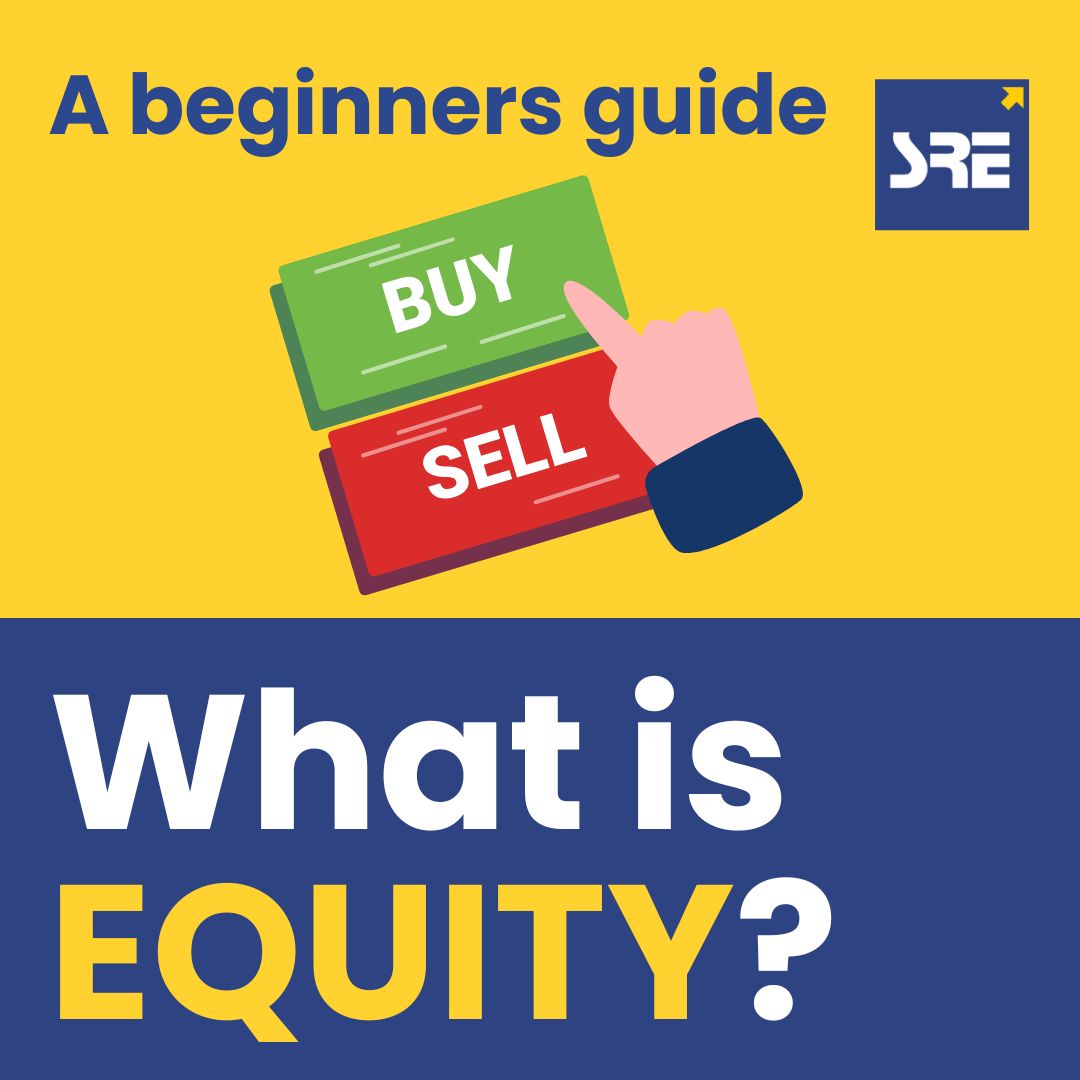
What Is Equity and Why It Matters to Every Investor?
by SRE Desk on 07 Aug 2025 06:08:32
Overall RATE (0.0)
Learn what equity means, how equity trading works, and why it's key to long-term wealth. Start smart with expert insights from SRE—your trusted stock broker in India.
What Is Equity and Why It Matters to Every Investor
If you've ever looked into investing, you've probably come across the word "equity." It’s used in Demat account ads, stock tips, market news—pretty much everywhere. But what exactly is equity? And why is it such a big deal?
Let’s make it simple.
When you buy equity in a company, you’re buying a part of that company. Not just a number on a screen—an actual piece of it. That means if the business does well, your share of it becomes more valuable. If it does poorly, you take a hit.
Equity is about ownership. And that ownership gives you a chance to grow your money faster than most other forms of investing—if you're willing to accept the ups and downs.
Equity = Ownership
Let’s say you buy 10 shares of a listed company—say, Tata Motors. What you're doing is buying into the business. You become a shareholder. Sure, you're not calling the shots in board meetings, but you do have a stake in the company’s performance.
As the company grows, its profits and brand value usually reflect in the share price. That’s where your gain comes from.
Also, some companies pay out part of their profits to shareholders through dividends. If you own equity, you're eligible to receive that as well.
How Equity Trading Works
Equity trading is just the process of buying and selling these shares on the stock market. You buy through your trading account, and the shares get stored in your Demat account.
Now, people use equity in different ways:
-
Some buy and hold for years—what’s called long-term investing.
-
Some do intraday trading—buying and selling within the same day.
-
Others may hold shares for a few weeks or months depending on trends.
All of these come under the umbrella of equity trading. The strategy you choose depends on your goals, risk appetite, and experience.
If you’re new, it’s generally smarter to start with long-term investing in stable companies, rather than trading daily.
Why Equity Is Popular Among Indian Investors
There’s a reason equity is becoming a go-to option, especially for younger investors. The potential returns are higher than what you’d get in fixed deposits, gold, or traditional insurance products.
But it’s not risk-free. The value of your investment can go up—or down—depending on how the company performs and how the market reacts to news, economic changes, or even global events.
That’s where guidance helps. At SRE, for instance, we help clients understand which stocks have solid fundamentals and long-term potential. You don’t need to rely on tips or guesswork.
Equity vs Other Investments
Let’s say you have ₹1 lakh. You could invest it in a fixed deposit and earn predictable but limited returns over time. Or you could invest it in stocks and, if the companies do well, see that amount grow faster.
Now of course, equity doesn't guarantee anything. But over the long run—say 5 to 10 years—well-picked stocks tend to outperform conservative instruments.
That’s why many investors today build their core portfolio with equity, and balance it with mutual funds, debt funds, or gold.
Common Mistakes to Avoid
A lot of new investors jump into equity markets because they hear stories of friends doubling their money. While that’s possible, it's not the norm.
Here are a few things to keep in mind:
-
Don’t treat equity like a lottery ticket. It requires patience.
-
Avoid chasing “hot” stocks without doing your homework.
-
Diversify—don’t put all your money into one company or one sector.
-
Have a clear reason for buying a stock. Growth, income, or both.
And always use a trusted broker who can offer more than just a trading app. Research, advisory support, and transparent charges matter more than you think.
Getting Started
Starting with equity isn’t complicated. You need a Demat account, a trading account, and a bank account—all of which can be set up digitally.
Once you're set up, you can start investing in stocks directly, or even consider equity mutual funds if you prefer a more hands-off approach.
At SRE, we help first-time investors open their accounts, understand how markets work, and start with small, informed investments. We also offer advisory services for those who want a bit more handholding at the start.
How Much Should You Invest?
There’s no fixed rule. If you’re in your 20s or 30s, you might choose to put 60–70% of your investable money into equity. If you’re closer to retirement, that percentage should come down.
The idea is to balance growth with safety.
Don’t invest money you’ll need in the short term. Equity works best when you give it time.
Final Thoughts
Equity is not just for experts or finance grads. It’s a way for anyone—with the right mindset—to grow their savings in line with the economy.
It has its risks. Prices go up and down. There’s no guaranteed return. But over time, equities have helped millions of people in India and across the world build wealth.
If you're thinking of starting, take your time to learn the basics, avoid short-cuts, and partner with a broker who puts your interest first.
At SRE, we help clients navigate equity markets with clarity, whether they're buying their first share or managing a portfolio worth crores.
And it all begins with understanding what equity really is—not a gamble, not a quick fix, but a smart way to grow your money through ownership.